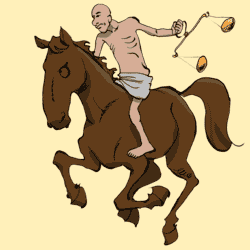 The fight against hunger is not hopeless; it is a battle that can be won, but it requires informed people to advocate for policy reform and new practices that work for the world’s poorest, according to Wall Street Journal reporters Roger Thurow and Scott Kilman in their book Enough: Why the World’s Poorest Starve in an Age of Plenty. The book is a passionately worded argument against the systemic injustices that continue to cause preventable hunger.
The fight against hunger is not hopeless; it is a battle that can be won, but it requires informed people to advocate for policy reform and new practices that work for the world’s poorest, according to Wall Street Journal reporters Roger Thurow and Scott Kilman in their book Enough: Why the World’s Poorest Starve in an Age of Plenty. The book is a passionately worded argument against the systemic injustices that continue to cause preventable hunger.
The book starts with the story of Norman Borlaug, a scientist sent to Mexico in the 1940s to try to solve the crop losses caused by wheat rust. What he actually discovered was ways of rapidly breeding new highly-productive varieties of crops so that the same amount of land could produce much higher yields. Borlaug’s techniques helped to feed the hungry in many countries and he was awarded the Nobel Prize. However, the book describes many different reasons why the green revolution has not yet brought food security to all.
In Ethiopia, the introduction of higher-yielding crops has actually contributed to food shortages. Abundant crops one year drove prices down below cost, so the next year less crops were planted and when a drought came there was insufficient food. Foreign aid has contributed to food shortages, with local farmers reluctant to plant crops they could not sell because of “free” food provided by aid agencies. The book tells many stories, each of which will make the reader angry but better informed.
Some of the ideas presented in the book seem inconsistent; for example, American farmers who provide food aid seem to be both heroes and villains at the same time. Not every reader will agree with all of the ideas advanced. Nonetheless, the book is highly engaging and no-one could disagree with the overall theme that the world needs to be doing a better job of ensuring food security for all.